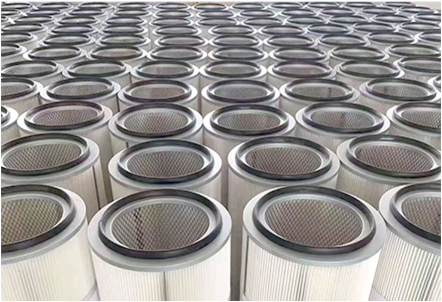 Tel:
+8615930870079
Tel:
+8615930870079
aug. . 20, 2024 06:34 Back to list
Optimizing Airflow with Effective Turbine Intake Filters for Enhanced Performance
The Importance of Turbine Air Intake Filters
Turbine engines are pivotal in various industries, especially in aviation and power generation. At the heart of these engines is the air intake system, which plays a crucial role in ensuring optimal performance. A critical component of this system is the turbine air intake filter. This article delves into the significance of these filters, their functionality, types, and the impact they have on engine performance and longevity.
Function of Turbine Air Intake Filters
The primary purpose of turbine air intake filters is to prevent contaminants from entering the engine. These contaminants can include dust, debris, moisture, and even insects. When these particles infiltrate the engine, they can cause a range of problems. They can lead to decreased efficiency, increased wear and tear on engine components, and ultimately, engine failure. The filter helps maintain clean air for combustion, thereby enhancing the overall efficiency of the engine.
Types of Turbine Air Intake Filters
There are several types of turbine air intake filters, each designed to meet specific operational needs and environmental conditions. The most common types include
1. Fiber Filters Made from synthetic or natural fibers, these filters are designed to trap particulates effectively. They are lightweight and easy to replace, making them popular in various applications.
2. Metal Mesh Filters These filters are composed of a series of metal grids designed to capture larger particles. They are often reusable and can be cleaned and maintained, providing a sustainable option for air filtration.
turbine air intake filters

3. Oil-Wetted Foam Filters By using an oil-based solution to trap dirt and dust, these filters provide excellent filtration while allowing for high airflow rates. They are often used in demanding environments where dust and particulates are prevalent.
4. HEPA Filters High-Efficiency Particulate Air (HEPA) filters can capture an impressive percentage of small particles. Though more commonly found in medical and industrial applications, some turbine engines utilize HEPA filters to ensure only the cleanest air enters the combustion chamber.
Impact on Engine Performance
The performance of a turbine engine is directly linked to the efficiency of its air intake filter. A clean, functioning filter allows for optimal air intake, leading to better combustion and improved overall performance. Conversely, a clogged or dirty filter can restrict airflow, causing a drop in engine power and efficiency. As the engine struggles to pull in air, it may consume more fuel and produce more emissions, which is detrimental not only to the engine but also to the environment.
Additionally, a well-maintained air intake filter can extend the life of the turbine engine. By ensuring that abrasive particles do not enter the engine, the filter minimizes wear on critical components. This can lead to lower maintenance costs and less frequent repairs, contributing to the overall economic viability of operating turbine engines.
Conclusion
Turbine air intake filters are an essential component of turbine engine efficiency, performance, and longevity. By preventing contaminants from entering the engine, these filters play a critical role in ensuring optimal operation. Understanding the types of filters available and their respective benefits helps operators choose the right solution for their specific needs. Regular maintenance and timely replacement of these filters can provide significant benefits, ensuring that turbine engines continue to perform at their best while minimizing environmental impact. As the demand for cleaner and more efficient energy solutions grows, the importance of reliable air intake filtration will only continue to rise.
-
Nano Fiber Technology: Revolutionizing Cartridge Dust Collector FiltersNewsAug.06,2025
-
How Activated Carbon Air Cartridges Eliminate OdorsNewsAug.06,2025
-
Dust Filter Cartridge Handling Fine Particulate MatterNewsAug.06,2025
-
Cartridge Dust Collector Filter for Welding Fume ExtractionNewsAug.06,2025
-
Activated Carbon Filter Cartridge Effectiveness Against VOCsNewsAug.06,2025
-
Activated Carbon Air Filter Cartridge Benefits ExplainedNewsAug.06,2025

 Email:
Email:





